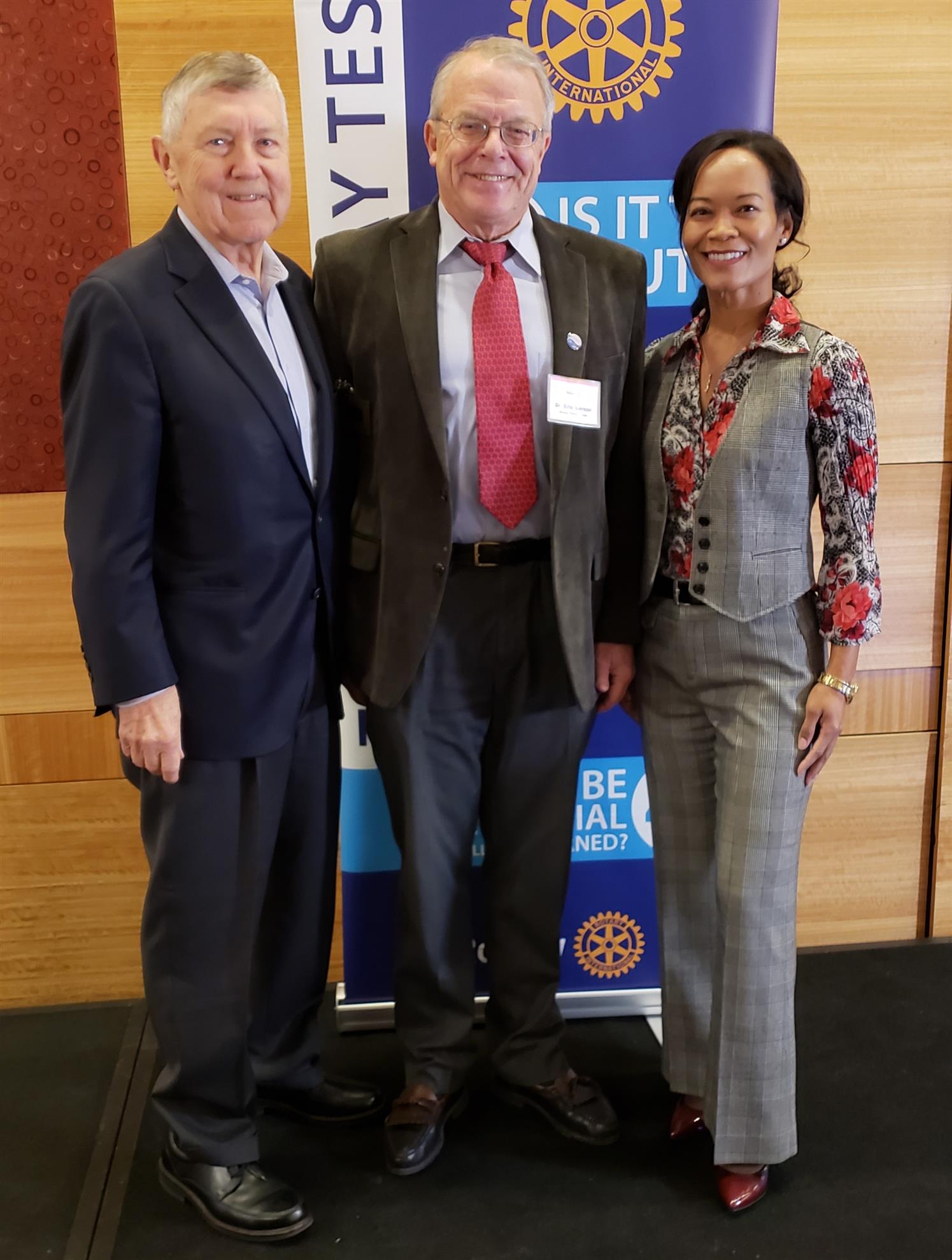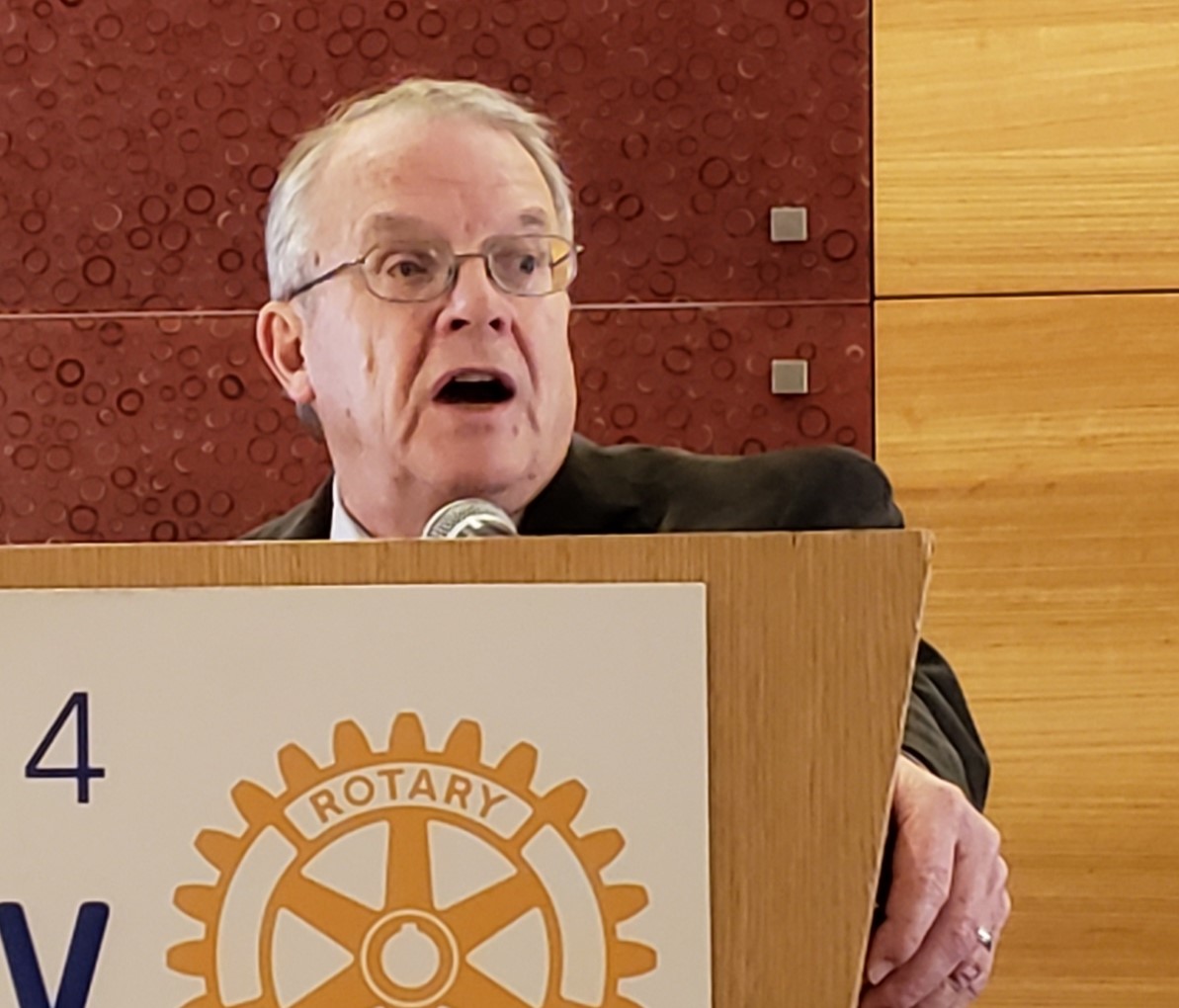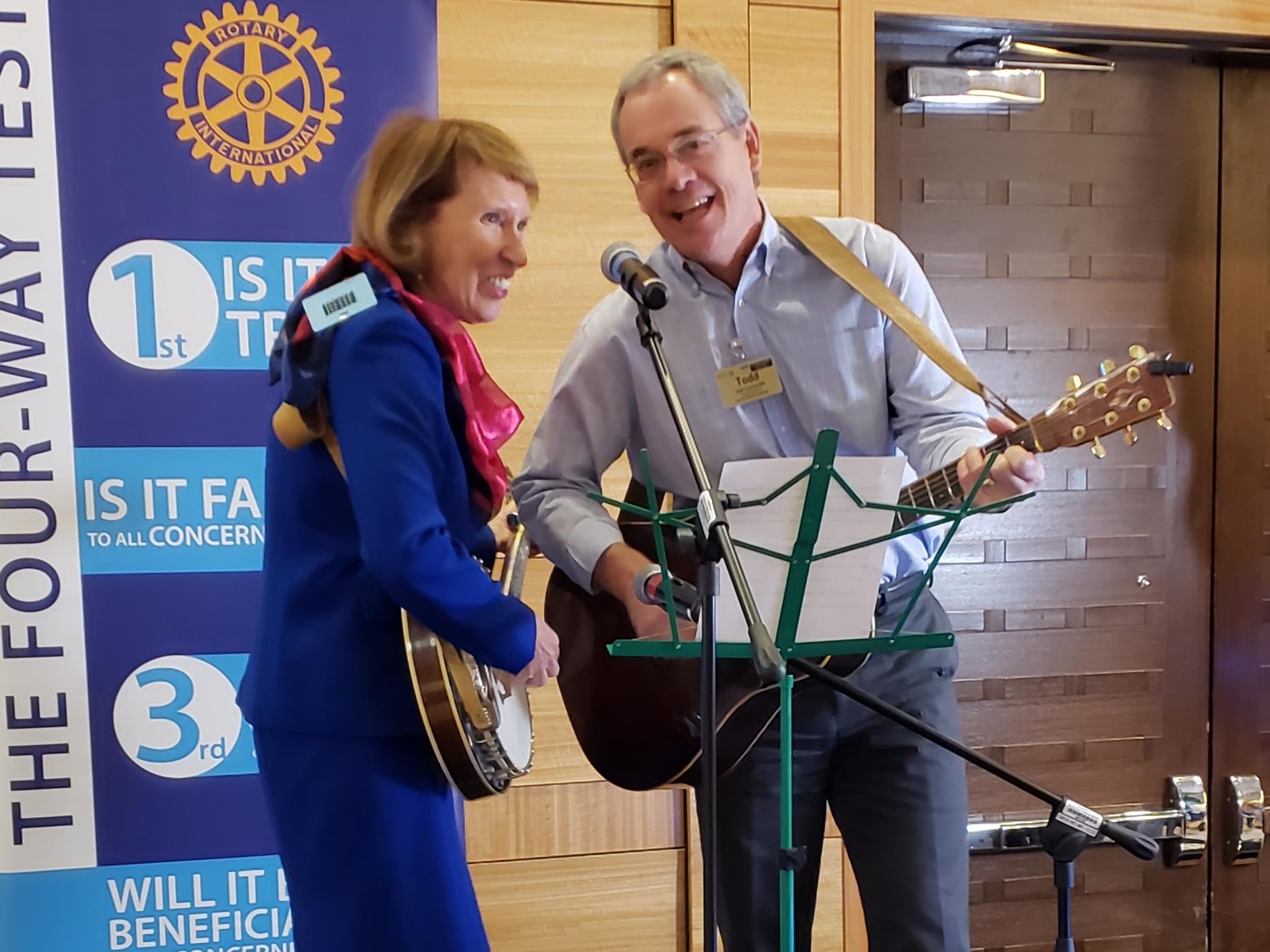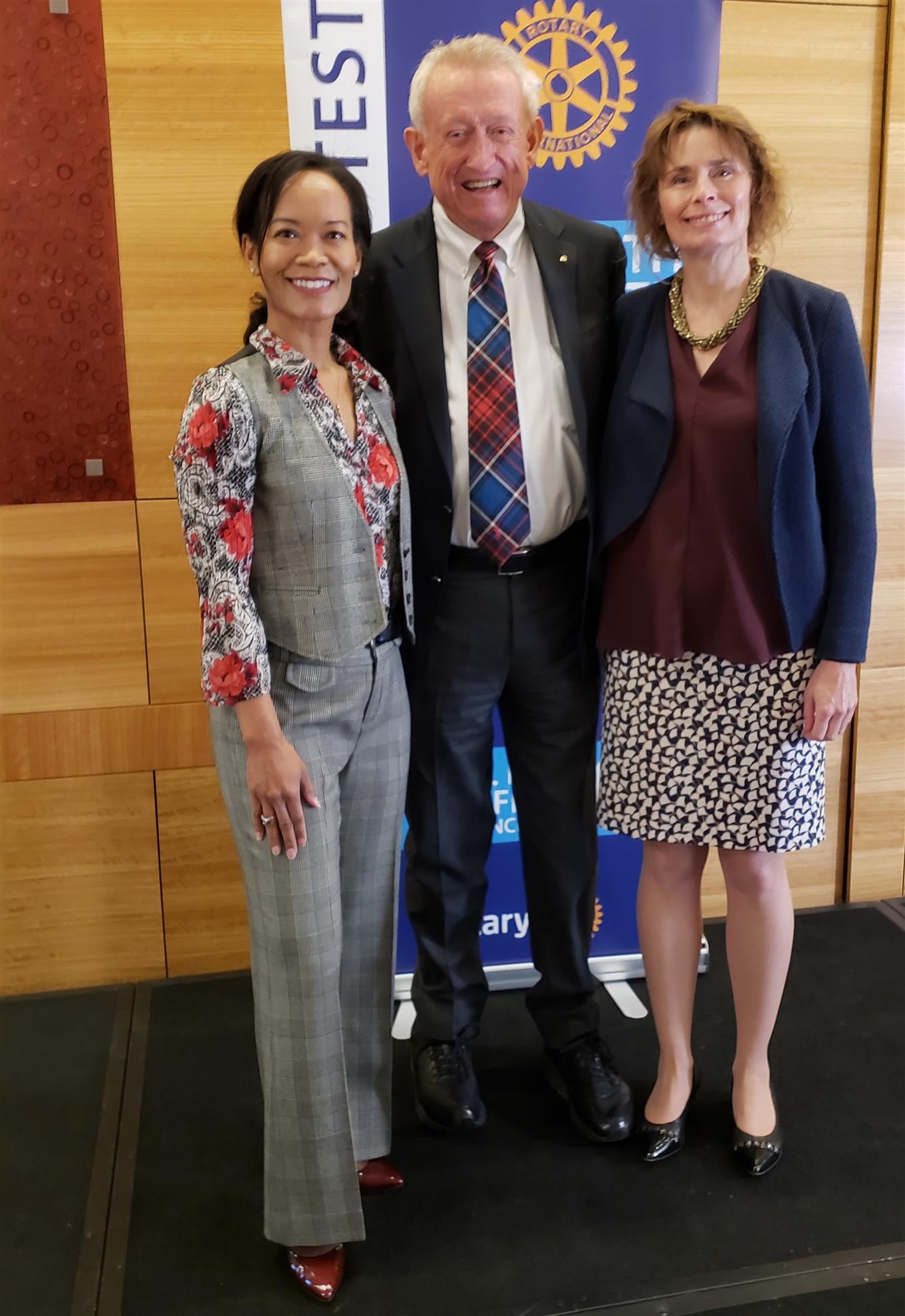 Dr. Eric Larson provided some great insights about aging at our club meeting. Larson is vice president for research and health care innovation at Kaiser Permanente. He’s an expert on aging well and shared insights from his new book, Enlightened Aging: Building Resilience for a Long, Active Life.
Dr. Eric Larson provided some great insights about aging at our club meeting. Larson is vice president for research and health care innovation at Kaiser Permanente. He’s an expert on aging well and shared insights from his new book, Enlightened Aging: Building Resilience for a Long, Active Life.Larson started by sharing about Van Shuler, a 100-year woman who he picked for a study on aging. When he first arranged to meet with her, she explained that she was only available that day because she was leaving the next day for tango dancing trip to Argentina. Shuler is a great example of enjoying life regardless of your age, and Dr. Larson suggested most of us have the potential to live into our 90s and 100s if we can follow Van’s example and live life to the fullest.
 As much as there is no magic bullet or fountain of youth, there are things we can all do to prepare for late life and adapt to changes that are a natural part of growing older. Larson calls this “enlightened aging” and suggests that it’s a key to longevity and happiness.
As much as there is no magic bullet or fountain of youth, there are things we can all do to prepare for late life and adapt to changes that are a natural part of growing older. Larson calls this “enlightened aging” and suggests that it’s a key to longevity and happiness.The research on aging and longevity is important because we are now living longer. If trends continue, babies born after 2000 may frequently reach 100 years of age. With advances in health care and a big generation of baby boomers getting older, preparing for old age is more important than ever.
To invest in our future and take aging in stride, Larson said we need to be proactive by taking an active role in managing our own health and wellbeing. We also need to accept the inevitable – changes will come with aging and how we accept them with mindfulness and equanimity is important. He also suggested we need to build our reserves of wellbeing in three ways: mentally, physically, and socially – for the long, fulfilling road ahead.
Fundamentally giving our lives meaning is the key. Larson reminded us that aging is not an inevitable downward spiral. Older people now have a greater chance of avoiding disability than ever before. Obviously, longevity depends on taking care of ourselves. Exercising regularly, maintaining a healthy weight, managing stress, and refraining from tobacco and excessive alcohol are important. What is also important, though, is to have a healthy state of mind. Having a purpose, maintaining strong relationships with friends and family, and making contributions through hobbies and volunteerism are key to a happy, long life.
 Larson's talk resonated with many of us. His insights were spot on and he provided many of us a prescription for a happy long life. As Rotarians, we are already committed to giving our existence meaning. This is a great first step towards longevity – now we just need to take care of ourselves and gracefully accept our golden years.
Larson's talk resonated with many of us. His insights were spot on and he provided many of us a prescription for a happy long life. As Rotarians, we are already committed to giving our existence meaning. This is a great first step towards longevity – now we just need to take care of ourselves and gracefully accept our golden years. Trish Bostrom and Todd Summerfelt serenaded us with a great rendition of Winter Wonderland.
 We were also thrilled to hear from one of our very special Honorary Rotarians, Ralph Munro. A former Seattle Rotary president, Ralph was featured in this week's Legends segment. According to Munro, Rotary is a place you can make a difference if you want to make a difference. Where else can you find the local, national, and international infrastructure already there for you? Rotary has survived when so many other clubs have not because we are not just a social club – we have survived because we do things. Munro shared that he used to read through a list of 35 countries where Polio was present and now there are only a few dozen cases around the world. Rotary has made the difference and Munro is very appreciative of how we continue to spur positive action and impact.
We were also thrilled to hear from one of our very special Honorary Rotarians, Ralph Munro. A former Seattle Rotary president, Ralph was featured in this week's Legends segment. According to Munro, Rotary is a place you can make a difference if you want to make a difference. Where else can you find the local, national, and international infrastructure already there for you? Rotary has survived when so many other clubs have not because we are not just a social club – we have survived because we do things. Munro shared that he used to read through a list of 35 countries where Polio was present and now there are only a few dozen cases around the world. Rotary has made the difference and Munro is very appreciative of how we continue to spur positive action and impact.Kathy Williams shared a Foundation Flash highlighting NatureBridge, one of the many beneficiaries of our Seattle Rotary Service Foundation. NatureBridge is an environmental education program that orients kids to nature and science. It’s a great program that is truly transformative for the kids involved.
